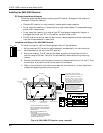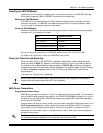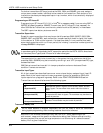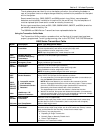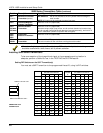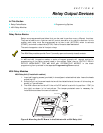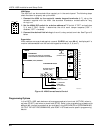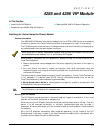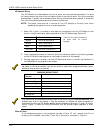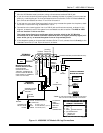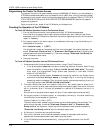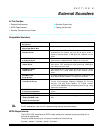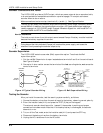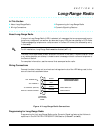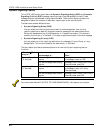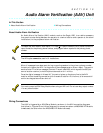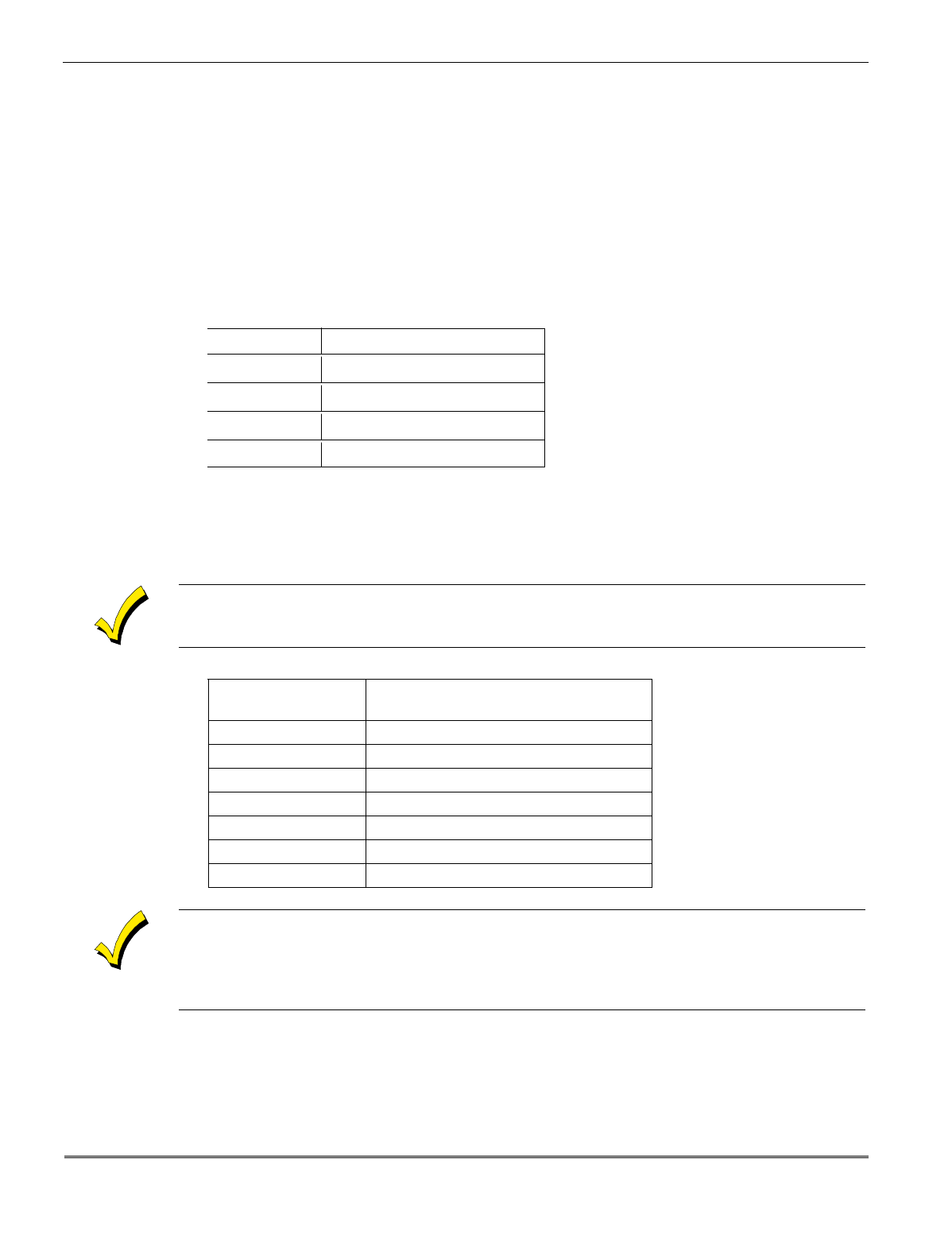
VISTA-10SE Installation and Setup Guide
7-2
VIP Module Wiring
The VIP Module is wired between the control panel and the premises handset(s). It listens
for touch-tones on the phone line and reports them to the control panel. During on-premises
phone access, it powers the premises phones; during off-premises phone access, it seizes the
line from the premises phones and any answering machines.
NOTE: The phone lines must be in service for the VIP Module to function, even when
accessing the system from an on-premises phone.
1. Make 12V (+) and (–) and data in and data out connections from the VIP Module to the
control, using the connector cable supplied with the VIP Module (see Figure 10).
Color Lead Terminal On Control
*
GREEN DATA IN (terminal 6)
BLACK AUX – (terminal 4)
RED AUX + (terminal 5)
YELLOW DATA OUT (terminal 7)
*
These are the same connections
as those used for remote
keypads
.
2. Insert the keyed connector at the other end of the connector cable into the mating header
on the VIP Module (see diagram on next page for location of the header).
3. Connect terminals 1 through 4 on the VIP Module as shown in the Wiring Table and in
the 4285/4286 wiring diagram that follows.
Use an RJ31X jack with a direct-connect cord and make all connections exactly as shown. If
the leads on the direct-connect cord are too short to reach their assigned terminals, splice
additional wires to them, as required.
4285/4286 WIRING TABLE
4285/4286/4286
Terminal
Connects to:
1.
Phone In (Tip)
Terminal (17) on control.
2.
Phone In (Ring)
Terminal (18) on control.
3.
Phone Out (Tip)
BROWN lead from direct-connect cord.
4.
Phone Out (Ring)
GRAY lead from direct-connect cord.
5.
NOT USED
——
6.
Output High
Not used (4285). Spkr High on 4286.
7.
Output Rtn
Not used (4285). Spkr Return on 4286.
If no touch-tones are produced following access to the security system
from on-premises
(this
problem may arise in rare cases), it may be necessary to reverse the wires connected to
terminals 3 and 4 on the VIP Module
and
the wires connected to terminals (17) and (18) on the
control.
Figure 11
shows the wiring connections that will provide proper operation in most
cases.
Caller ID Units
If the telephone system on the premises includes a Caller ID unit, connect the ID unit
directly to the “Handset” terminals (17 and 18) on the control, as shown in Figure 11.



